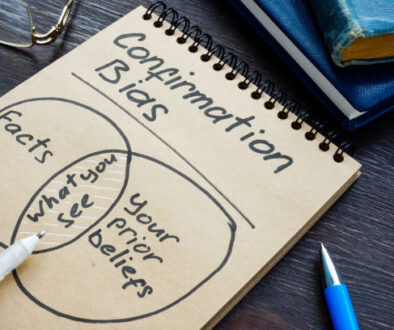Conspiracy Theories and Fake News
Menanteau Serfontein – 18 March 2021
What are Conspiracy Theories and Fake News all about?
Why do people believe in Conspiracy Theories (and Fake News)?
What Factors Increase Conspiracy Belief?
What are the effects and risks of these beliefs?
How does one combat/overcome susceptibility to such beliefs?
A Conspiracy Theory is a belief that some covert but influential organization is responsible for an unexplained event. It is an attempt to explain harmful or tragic events as the result of the actions of a small powerful group. Such explanations reject the accepted narrative surrounding those events; the official version may be seen as further proof of the conspiracy. Conspiracy theories increase in prevalence in periods of widespread anxiety, uncertainty, or hardship, as during wars and economic depressions and in the aftermath of natural disasters like tsunamis, earthquakes and pandemics.
Fake News is false or misleading news stories or information that is often of a sensational nature presented as news created to be widely shared or distributed. It is often deliberately created and spread in order to influence public opinion or obscure the truth, e.g. promoting or discrediting a public figure, entity, political movement, etc, or for making money through for example “clickbait” (the writer profits on the number of people who click on the story).
In recent years, fake news stories have proliferated via social media, in part because they are so easily and quickly shared online. The universe of “fake news” is much larger than simply false news stories. Some stories may have a nugget of truth, but lack any contextualizing details and may not include any verifiable facts or sources. Some stories may include basic verifiable facts, but are written using language that is deliberately inflammatory, leaves out pertinent details or only presents one viewpoint.
Note: A large part of the content of this article was derived from a paper entitled “Why People Believe in Conspiracy Theories” written by Kendra Cherry and medically reviewed by Steven Gans – Updated on September 19, 2020 which appeared in verywellmind.
Roger Cohen (Author and Journalist) says “Conspiracy theory is the ultimate refuge of the powerless. If you cannot change your own life, it must be that some greater force controls the world.”
Reasons why people believe in Conspiracy Theories
What explains this common and often deep-rooted belief that powerful, sinister, and secretive groups are conspiring to deceive others—particularly in a day and age where we have more access to information and facts that might debunk these ideas? Researchers suspect that there are a number of psychological mechanisms that contribute to these beliefs.
In a world where you might feel powerless and alienated, it can be appealing to believe that there are forces plotting against you and your interests. Once these beliefs take root, cognitive biases and mental shortcuts reinforce and strengthen them. (A cognitive bias is a strong, preconceived notion of someone or something, based on information we have, perceive to have, or lack. These preconceptions are mental shortcuts the human brain produces to expedite information processing—to quickly help it make sense of what it is seeing”.)
Researchers suggest that there are a number of different reasons why people believe in conspiracy theories. Many of these explanations boil down to three key driving factors:
- A need for certainty/consistency and understanding (Epistemic Reasons)
The world can often seem confusing, dangerous, and chaotic. At the same time, people want to understand what’s happening and are driven to explain things that happen. When people encounter disparate information, it is only natural to look for explanations that connect the dots. Conspiracy theories offer explanations that provide this connection.
Typical factors that increase conspiracy belief include situations involving large-scale events, where more mundane or small-scale explanations seem inadequate and situations where people experience distress over uncertainty. When confusing things happen, believers can then assume that it is because they are being intentionally deceived by outside forces.
Another factor playing a role is low tolerance for uncertainty. As a result, people turn to conspiracy theories to provide explanations for events that seem confusing or frightening.
Confirmation bias can also play a role in the development of conspiracy belief. People are naturally inclined to seek out information that confirms their existing beliefs. So when they run across a theory that supports something that they already think is true, they are more likely to believe the information is also true.
- A need for control (Existential Reasons)
There is evidence that people turn to conspiracy theories as a way of feeling safer and more in control. When people feel threatened in some way, detecting sources of danger can be a way of coping with anxiety.
While researchers understand these existential motivations, there is little evidence that believing in these theories actually helps people satisfy this need to feel control and autonomy.
So while people may be drawn to conspiracy theories as a way of making sense of the world and feeling more in control of their own destiny, the long-term effects may actually leave people feeling more disempowered than ever before.
- A need to belong or feel special (Social Reasons)
Researchers have found that those who are believing in conspiracy theories, feel that they are the “heroes” of the story, while those who are conspiring against them are “the enemy.” They also feel that they are on the “losing” side of a political issue, have experienced social ostracism and are prejudiced against “enemy” groups they perceive as powerful.
Such findings suggest that conspiracy beliefs might arise as a sort of defence mechanism. When people feel disadvantaged, they are motivated to find ways to boost their own self-perceptions. Blaming others by linking them to malevolent plots provides a scapegoat on which to lay blame, thus improving how conspiracy believers view themselves.
The way in which people encounter and share these ideas should also be noted. It’s easy to dismiss a story shared by a random source that you don’t trust. However, when multiple people in your social circle who you do know and trust, all seem to believe the same story, it starts to seem less like a silly conspiracy and more like a trusted fact. Sharing these kinds of stories within our networks gives social credence to such conspiratorial thinking.
The Effects
While researchers have some good theories about why people believe in conspiracies, it is less clear what the ultimate effects of these beliefs are.
What researchers have found is that while these beliefs are motivated by a desire to understand, exert control, and feel socially connected, these aren’t the effects people are deriving from their beliefs. Rather than fulfilling these needs, believing in conspiracies seems to reinforce feelings of confusion, isolation, disenfranchisement, and loneliness.
It is a destructive cycle—negative feelings contribute to the belief in conspiracies, yet the belief in conspiracies results in negative feelings.
It also diminishes trust in science and research itself. This distrust might cause people to stop seeing themselves as valuable contributors to society. Rather than helping people cope with their feelings of social alienation and political disenfranchisement, conspiracy beliefs seem to create a cycle of distrust that leads to even greater disempowerment.
The Risks
Believing in things that are not true poses a number of dangers, which can have real effects that impact individual behaviour and ultimately have a ripple impact on society as a whole.
Failing to address dangerous misbeliefs presents a potential danger to public health and even the political process itself.
Overcoming Conspiracy Theory Beliefs
In the age of disinformation, finding ways to refute conspiracy beliefs seems more important than ever. Social platforms claim to be buckling down on those who peddle and profit from conspiracies, but is it really possible to change such views once they’ve taken root?
People tend to take one of two approaches in the pursuit of goals.
- Those who are “Promotion-focused” believe that they have the power and control to shape their future. Promotion-focused people see their goals as creating a path to gain or advancement and concentrate on the rewards that will accrue when they achieve them.
- People who are “Prevention-focused”, on the other hand, are more focused on protecting what they already have rather than on achieving their goals. Prevention-focused people, in contrast, see their goals as responsibilities, and they concentrate on staying safe.
Researchers have found that “Promotion-focused” people were more sceptical and less likely to buy into conspiracies and that one of the most effective tactics to overcome conspiracy theory beliefs is to encourage people to pursue their goals by adopting a “Promotion-focused” approach which could reduce belief in conspiracies.
Personal observation
Those of us who prefer to believe in the truth, should be aware of the widespread existence of conspiracy theories and fake news and go out of our way to verify the facts related to a given issue or event, before we decide whether something is true or false.






